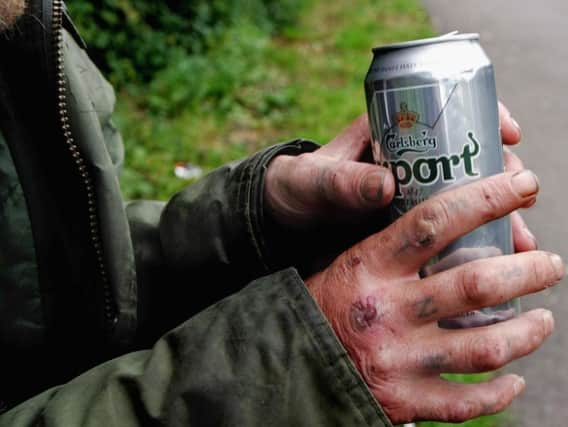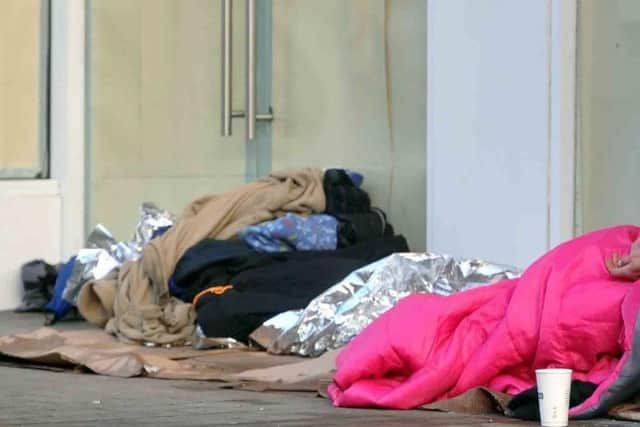Homeless in Wakefield: Drinking on the streets is huge concern


In our city centre survey you told us that people drinking on the streets was one of the worst things about Wakefield.
Groups of people can be seen outside the cathedral, at the top of Westgate, and on Kirkgate most evenings and during the day.
Advertisement
Hide AdAdvertisement
Hide AdWest Yorkshire Police, Wakefield Council and partner agencies use a mixture of orders to remove – and sometimes jail – people who persistently offend.


Inspector Helen Brear, Wakefield’s main officer in charge of policing Wakefield city centre, has already warned that most beggars in the city are not actually homeless.
MORE NEWS: Wakefield firm fined £1.4m after worker was crushed by machineBut services to help people with legitimate drink and drugs problems are available.
Social enterprise Turning Point offers therapies and support to people in the district.
Advertisement
Hide AdAdvertisement
Hide AdGovernment figures estimate there are seven people sleeping rough in Wakefield each night
Between January and December 2017, 231 people were considered to be homeless in Wakefield
A total of 4,751 people were counted or estimated by local authorities to be sleeping rough in England on any one night in autumn 2017
The organisation’s interim head of operations Jo Rowe said complicated circumstances lead to street drinking.
Advertisement
Hide AdAdvertisement
Hide AdOn the situation in Wakefield, she said: “The issues might include homelessness, unemployment, traumatic experiences, mental health, social isolation and as a coping mechanism to enable individuals to function on a daily basis.
MORE NEWS: 'My older brother was to blame': Shalamar takeaway in Wakefield loses licence“This can impact on the individual’s well-being over time as well as having a negative impact on the local community.
“Those who struggle to manage their alcohol intake or who are physically dependent on alcohol can struggle to afford to drink in pubs or clubs and so buy strong cheap alcohol from supermarkets or off licences which may then be consumed in public areas especially if a lack of accommodation is a problem.”
She said Turning Point can offer treatment to reduce alcohol intake or move towards total abstinence. The support is a mixture of one to one work, groups and online work.
Advertisement
Hide AdAdvertisement
Hide AdThe organisation also runs the Socialicious cafe on Westmorland Street, which offers training to help people back into employment as well hosting a full programme of groups, peer support and well-being workshops.
Jo said: “Our services are designed to empower people accessing treatment to realise that recovery is possible.
“With support and the right package of care in place alongside that commitment from those keen to progress in their own recovery, this can happen. Recovery has been achieved by many people in the district over the past 30 years.”
To contact Turning Point visit wellbeing.turning-point.co.uk/wakefield or call 0300 1231912.
Advertisement
Hide AdAdvertisement
Hide AdAndrew Balchin, corporate director for adults, health and communities at Wakefield Council, said: “We are committed to supporting anyone who is homeless and, or, needs support to recover from issues with drugs or alcohol.
MORE NEWS: 13-year-old hit by car in Bull Lane, Wakefield"Anyone who is homeless or at risk of homelessness should contact the Council’s Housing Needs Service on 01924 304360. The service works with people to, wherever possible, prevent or relieve homelessness. We also offer a drug and alcohol support and recovery service to help individuals.
“This support fits around an individual’s needs and can include advice to help individuals understand the nature of their problem, get medical treatment if required and access to mutual help in groups.”